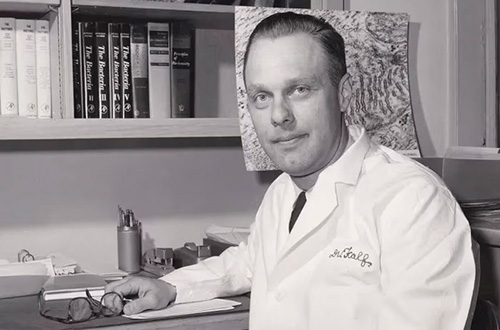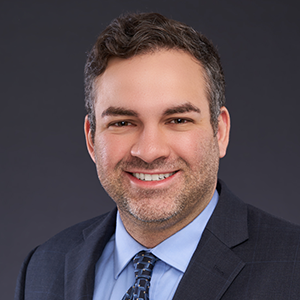In memoriam: George Kalf
George F. Kalf, an emeritus professor at Thomas Jefferson University and a member of the American Society for Biochemistry and Molecular Biology for nearly six decades, died March 1 from congestive heart failure at his home in Ann's Choice Senior Living Center in Warminster, Pennsylvania. He was 92.

Born Dec. 22, 1930, in New Britain, Connecticut, Kalf earned a B.S. in chemistry at Upsala College in 1952 in New Jersey, an M.S. in biochemistry at Pennsylvania State University in 1954, and a Ph.D. in biochemistry from Yale University in 1957.
After graduate school, Kalf completed a postdoc in glycobiology and enzymology supported by the National Polio Foundation and received advanced immunology training from the U.S. Department of Agriculture National Animal Disease Laboratory.
Kalf got his first faculty position in 1959 at the New Jersey College of Medicine and Dentistry in Newark, where he stayed for seven years. During this period, Kalf established his research program characterizing mitochondrial enzymes and also had an appointment as an adjunct professor of pharmacology and toxicology at Rutgers University.
In 1966, Kalf moved his research program to Thomas Jefferson University’s medical school, where he had a productive and fulfilling 40-year career and served as associate dean of scientific affairs, overseeing research and biosafety, from 1995 to 2005.
According to Scopus, Kalf has an H-index of 24 with 77 publications that received 1,744 citations. His two most-cited primary research articles were published in the Journal of Biological Chemistry: A 1967 paper documented a method to minimize ribosomal contamination in mitochondrial preparations and demonstrated mitochondria contain ribosomes, and a 1968 paper reported the discovery of mitochondrial DNA polymerase and a method to isolate the enzyme from rat mitochondria.
Kalf was passionate about access to education. His personal connection to this cause came from his own dependence on scholarships to support his undergraduate education. He and his wife, Jeanne Williams Kalf, who had been his high school sweetheart, established two undergraduate scholarships in their names and contributed to another fund specifically for first-generation students, all at Bay Path University, a private bachelor’s-granting school in Massachusetts for women and his Jeanne Kalf’s alma mater.
In a tribute, Bay Path President Sandra Doran said, “(T)hese endowments answer perhaps our highest calling as an educational institution, namely to provide women with access to a brighter future through a world-class education.” In 2015, George Kalf received the Bay Path President’s Award for his service and support, and in 2019 he received an honorary Bay Path doctorate of humane letters.
Kalf’s wife died in 2010. He is survived by his two children, four nieces and nephews, and four grandchildren.
Enjoy reading ASBMB Today?
Become a member to receive the print edition four times a year and the digital edition monthly.
Learn moreGet the latest from ASBMB Today
Enter your email address, and we’ll send you a weekly email with recent articles, interviews and more.
Latest in People
People highlights or most popular articles

2026 ASBMB election results
Meet the new Council members and Nominating Committee member.

Simcox wins SACNAS mentorship award
She was recognized for her sustained excellence in mentorship and was honored at SACNAS’ 2025 National Conference.

From humble beginnings to unlocking lysosomal secrets
Monther Abu–Remaileh will receive the ASBMB’s 2026 Walter A. Shaw Young Investigator Award in Lipid Research at the ASBMB Annual Meeting, March 7-10 in Washington, D.C.

Chemistry meets biology to thwart parasites
Margaret Phillips will receive the Alice and C. C. Wang Award in Molecular Parasitology at the ASBMB Annual Meeting, March 7-10 in Washington, D.C.

ASBMB announces 2026 JBC/Tabor awardees
The seven awardees are first authors of outstanding papers published in 2025 in the Journal of Biological Chemistry.

Decoding how bacteria flip host’s molecular switches
Kim Orth will receive the Earl and Thressa Stadtman Distinguished Scientists Award at the ASBMB Annual Meeting, March 7–10, just outside of Washington, D.C.

